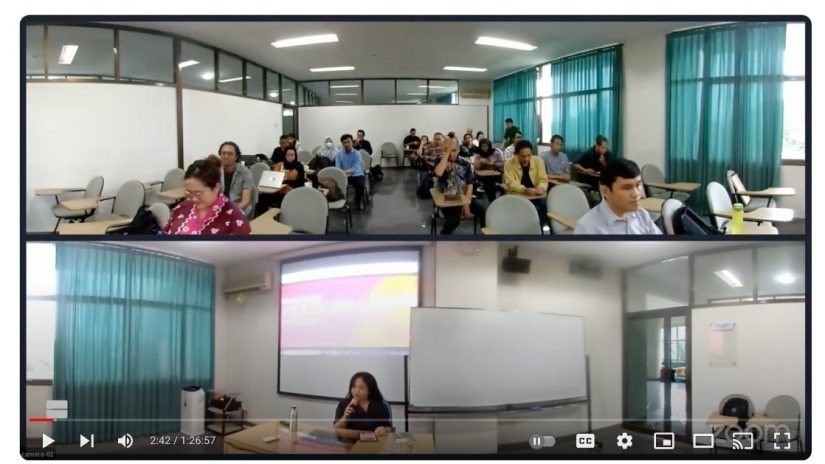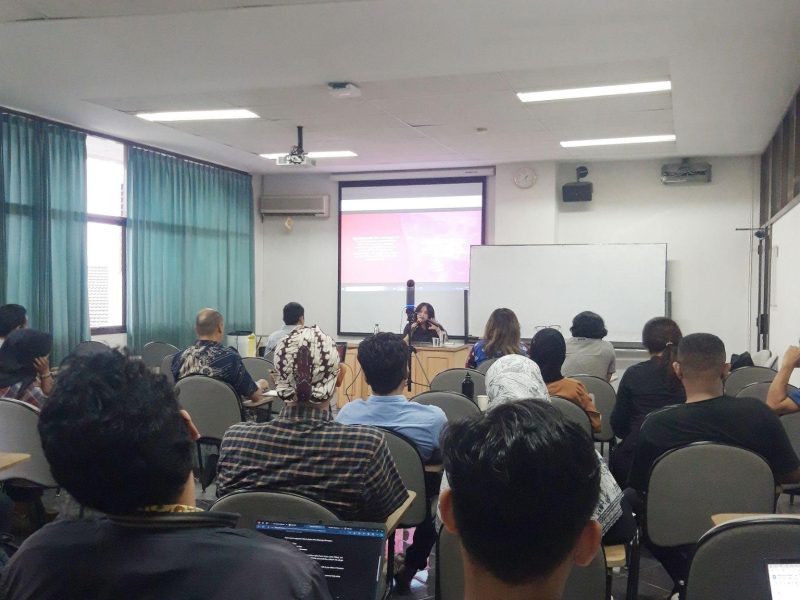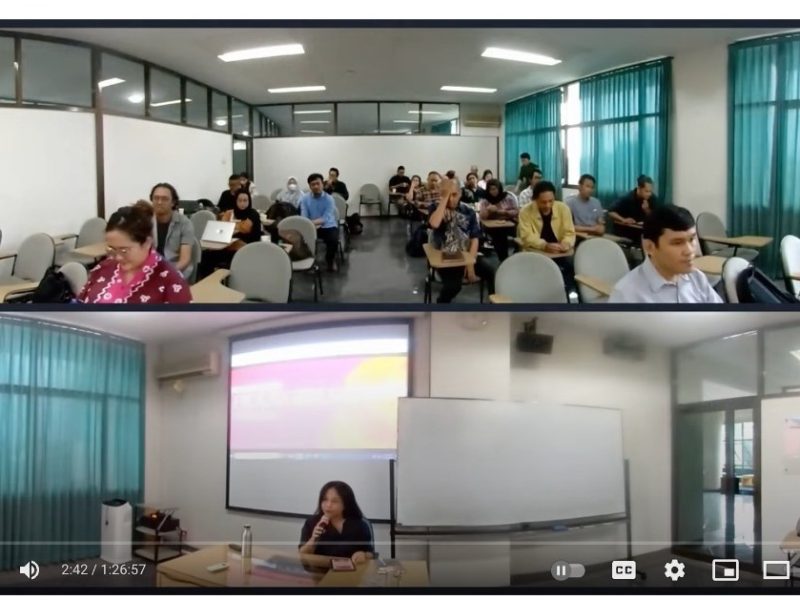
The Second Semester of the Academic Year 2023/2024 draws to a closing, the Center for Religious and Cross-Cultural Studies (CRCS), Graduate School, Universitas Gadjah Mada (UGM) held its final Wednesday Forum of the semester. The Wednesday Forum is a regular activity held every week as a space for discussion and learning for students, inviting experts and activists. On Wednesday (12/06), the Wednesday Forum addressed the topic “Pious Girls, The Muslim Woman, and Self-Transformation” held in Classroom 307, 3rd Floor, Graduate School Building, UGM, and broadcasted live on the CRCS UGM Youtube Channel.
This event featured Annisa R. Beta as the speaker. Annisa is a researcher and lecturer at the University of Melbourne. Annisa is the author of the book “Pious Girls” (Routledge, 2024) and one of the founders of Annotation and Open Ethnography Network. Annisa also received the Australian Research Council Discovery Early Career Researcher Award (DECRA) for the years 2023-2025 and has conducted extensive research on youth, new media, and political subjectivities in Southeast Asia.
This discussion focused on how influential groups and figures of young Muslim women invite their followers to understand the ideal ways of being devout Muslim women. According to Annisa, Muslim women with large followings on social media have the potential to influence society in shaping the ideal behaviors required to be considered devout Muslim women.
Annisa cited the example of Dian Pelangi, who is one of the pioneers of the hijab fashion trend in Indonesia. It is said that being a true Muslim woman is not just about wearing the hijab but also about possessing intelligence and good moral character. This idea has gained traction and is followed by many other women in Indonesia striving to be devout Muslim women.
Following Annisa’s presentation, for approximately one hour, students posed many questions before the discussion session concluded. This Wednesday Forum activity provided an understanding that there are now many young Muslim women influencers in Indonesia who are increasing openness to feminist ideologies.
Keywords: education, women empowerment, feminism, SDG 4: Quality Education, SDG 5: Gender Equality, SDGs
Author: Asti Rahmaningrum


